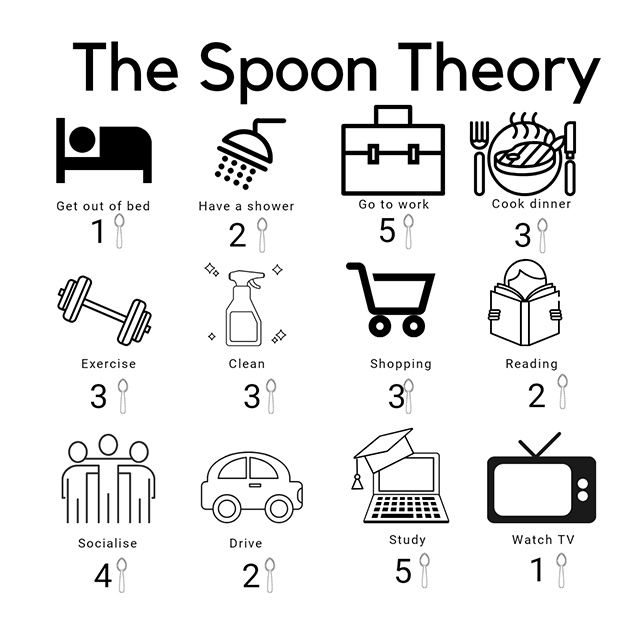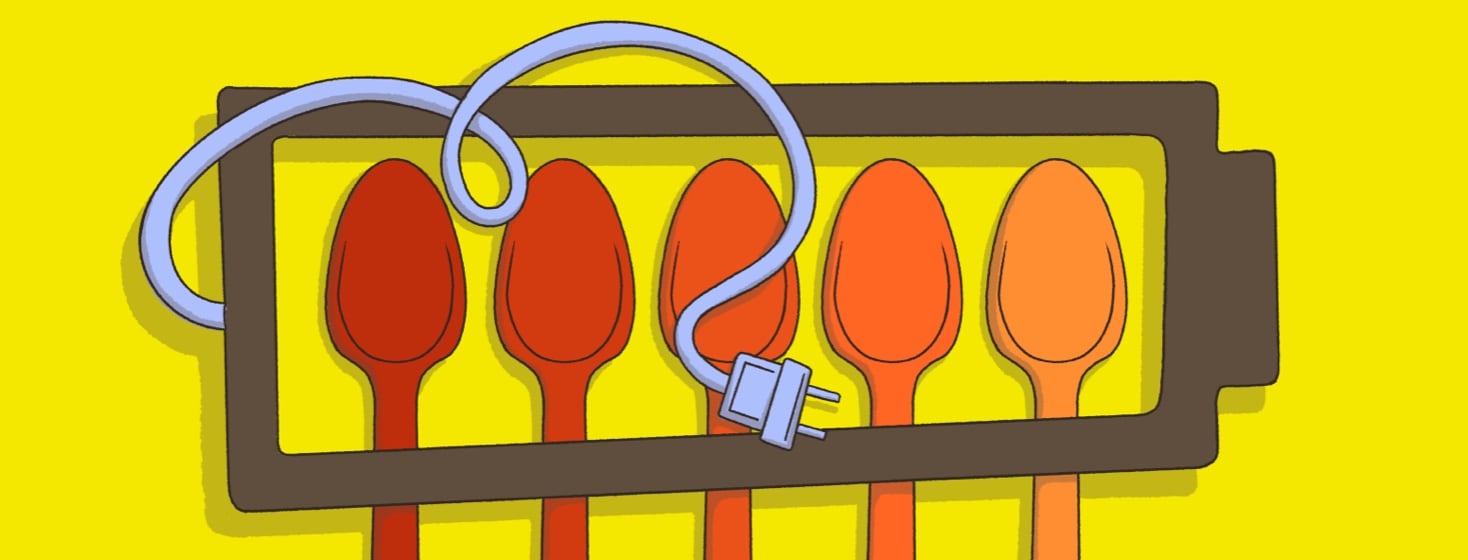The Exhaustion of Just Making It Through the Day: Helping Others to Understand
Living with narcolepsy can involve fighting excessive daytime sleepiness and fatigue on a daily basis. Getting through each day and engaging in daily activities can feel like a never-ending battle.
This can lead to feelings of frustration and despair compounded by the fact that the people around you don't understand. Trying to explain this daily battle can feel impossible.
The spoon theory by Christine Miserandino
I came across this theory by Christine Miserandino on social media. I have since found it to be a very effective way of explaining how difficult daily life with narcolepsy can be.1
Christine originally created the theory as a way to explain to her friend what living with lupus is like. Since then, it has become a useful metaphor to explain what it is like to live with a chronic condition.
The spoon theory to explain narcolepsy
In this theory, spoons represent how much energy we all have throughout the day to complete different tasks. Those without narcolepsy might have an unlimited number of spoons. Those with narcolepsy have a limited number of spoons.
Using the image below, you can work through your daily activities and see how many spoons each requires. However, instead of starting with unlimited spoons, you will start the day with a limited number like someone with narcolepsy does.
Let's say that you start your day with 20 spoons. Yet before beginning the day, certain factors can impact your starting number of spoons. For example, if you over-exerted yourself yesterday and used 21 spoons, today you will be down to 19 spoons. If you had a worse night's sleep than normal, you are down to 17 spoons.

Starting with just 17 spoons, take a look at the example activities and consider your daily routine. Take a look at the number of spoons each activity requires. Did you find that you barely made it past the morning before using the majority of your spoons? Perhaps it got to the evening and you had fewer spoons left than what your activities require.
So, now you are left having to choose between activities. You could push yourself to complete these activities but this means borrowing spoons from tomorrow. This leaves you with fewer spoons to begin your day with tomorrow.
Featured Forum
View all responsesLiving with limited spoons
This gives insight into life with narcolepsy and how it impacts day-to-day life. Normal levels of tiredness do not have an impact on the number of spoons. For those of us with narcolepsy, as our energy is limited, we have to ration our energy/spoons. Therefore, we may have to choose between activities to make it through the day.
It could involve deciding between socialising with friends or washing our hair. When you have unlimited spoons, this isn't something you consider. Also, every day is different and therefore the number of spoons that we have can vary.
How the spoon theory helps me
Adjusting to living with limited spoons can be extremely difficult. You think that you are able to carry on as normal doing everything that you used to do. However, you realise that as much as you may want to, you no longer can and therefore have to learn to adapt.
I have personally found the spoon theory to help me not be so hard on myself. To know that it is okay not to be able to do everything or to cancel plans. It has also helped me to explain the struggle of day-to-day life to loved ones.
Remember, before you judge someone with narcolepsy or think they are lazy, there is a huge difference between what someone with narcolepsy wants to do and what they can do.
Do you relate to the spoon theory? Join our community and share in the comments below.

Join the conversation